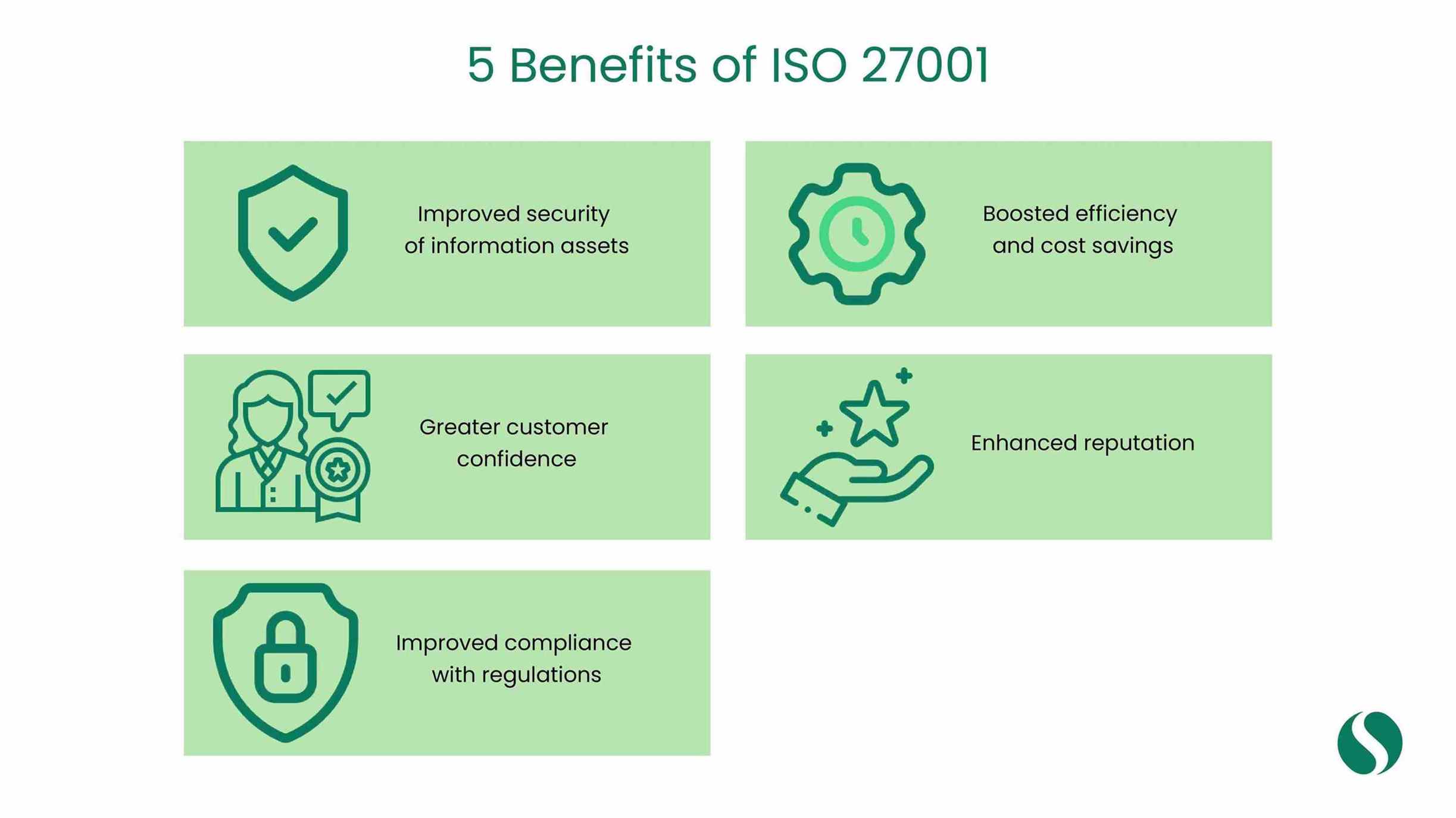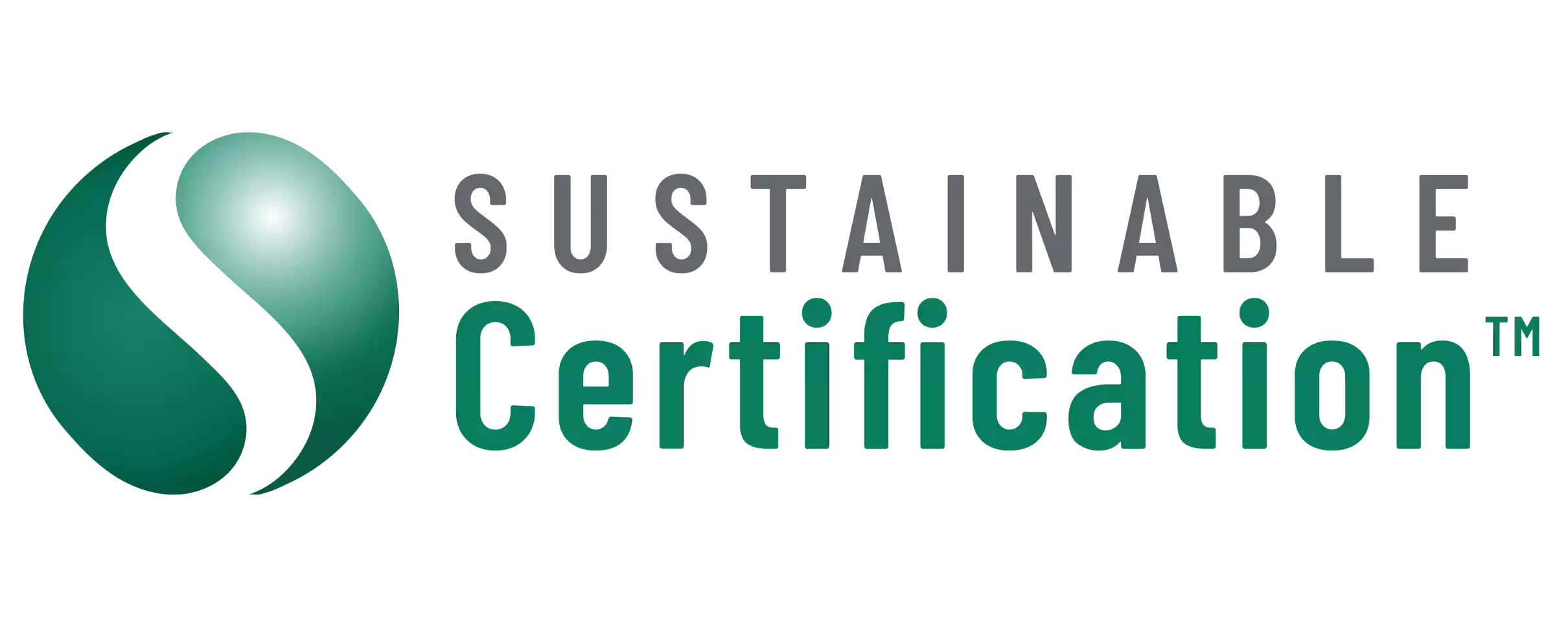Secure Your Business with ISO 27001 Certification

Information security threats are becoming more sophisticated, making structured data protection critical for modern organisations.
ISO 27001 certification provides a structured, internationally recognised framework to help organisations manage and protect their sensitive information securely.
This article details essential aspects of achieving ISO 27001 certification, enabling your business to improve security, ensure compliance, and strengthen stakeholder confidence.
ISO 27001 ISMS: Definition and Key Concepts
ISO 27001 is an international standard for establishing, implementing, and maintaining an Information Security Management System (ISMS). The standard ensures that organisations manage security risks effectively and systematically protect sensitive data.
Organisations commonly pursuing ISO 27001 certification include:
- Businesses handling sensitive customer data, such as banks and healthcare providers.
- IT service providers and software developers.
- Organisations that are required by regulatory authorities to demonstrate information security compliance.
For official requirements and clause details, see the ISO 27001 Official Standard page.
How Can ISO 27001 Benefit Your Organisation?
There are many benefits that come with implementing an ISMS based on ISO 27001. These benefits include:
–Improved security of information assets: By identifying and managing information security risks, you can protect your organisation’s confidential data from loss, theft, or damage.
–Boosted efficiency and cost savings: A well-managed ISMS can help you streamline your organisation’s security processes, leading to increased efficiency and cost savings.
–Greater customer confidence: Implementing an ISMS based on ISO 27001 can give your customers reassurance that their data is being properly protected. This could give you a competitive edge in winning new business.
–Improved compliance with regulations: Following the requirements of ISO 27001 can help ensure that your organisation complies with applicable legal and regulatory requirements.
–Enhanced reputation: Being certified to ISO 27001 can demonstrate to stakeholders that your organisation takes information security seriously and is committed to protecting its data.

who want to learn more about how they can improve their organisation’s information security management system. If you have any questions about ISO 27001 certification, our team of experts would be happy to help – just get in touch!
The ISO 27001 Certification Process
In order to achieve ISO 27001 Certification, one must go through various stages prior to commencing the extegnal audit process:
- Initial Gap Analysis: Identifying and documenting gaps between current practices and ISO 27001 requirements.
- Document Development: Creating mandatory policies, procedures, and controls.
- Internal Audits: Conducting regular audits to address compliance issues promptly.
- External Certification Audit: Engaging accredited external auditors to verify ISMS effectiveness.
- Continuous Improvement: Regularly managing reviews and updates to adapt the ISMS to new threats and business needs.
Systematically completing these steps ensures thorough preparation and successful ISO 27001 certification. To streamline your ISO 27001 journey, consult Sustainable Certification.
Updates to the ISO 27001 Standard
ISO 27001 continues evolving to address emerging cybersecurity threats. Recent updates include:
- Strengthened guidance for managing cloud-based and digital data.
- Increased emphasis on cybersecurity and proactive risk management.
- Improved integration with other ISO management system standards.
Organisations should incorporate these updates to maintain an effective ISMS. Detailed information on recent revisions can be found at ISO’s Insights and News.
Prerequisites for ISO 27001 Certification
Preparing thoroughly streamlines your certification process. Organisations must:
- Establish and document an operational ISMS.
- Develop detailed security policies, procedures, and documentation.
- Conduct comprehensive risk assessments and create actionable risk treatment plans.
Meeting these requirements ensures smooth certification and ongoing compliance for your business.
ISO 27001 Certification in Australia
Australian organisations pursuing ISO 27001 certification must meet local regulatory requirements.
- Obtain certification from Australian accredited bodies.
- Ensure compliance with Australian Privacy Principles (APP).
- Utilise local ISO 27001 consultants familiar with Australian compliance standards.
Adhering to these guidelines positions you as compliant both domestically and internationally.
ISO 27001 Resources and Training
Accessing reliable resources and structured training is essential for achieving ISO 27001 certification. Recommended resources include:
- Official ISO documents and guidelines from ISO.org.
- Professional training courses and certification programs provided by recognised Australian institutions such as Standards Australia.
- Practical templates, checklists, and implementation guides are available from reputable training providers.
Using these resources effectively supports your business’s successful certification and ongoing compliance.
ISO 27001 and GDPR Compliance
ISO 27001 significantly supports compliance with GDPR by:
- Facilitating structured approaches to data security and privacy management.
- Supporting GDPR requirements for systematic data protection audits.
- Ensuring accountability and transparency in data processing activities.
Implementing ISO 27001 supports organisations seeking robust GDPR compliance.
Security Controls and Best Practices for ISO 27001
Effective ISO 27001 implementation involves strategic security controls, such as:
Technical Controls
- Multi-Factor Authentication (MFA): Enhances user verification and reduces the risk of unauthorised access.
- Data Encryption: Secures information using strong encryption standards (e.g., AES-256) for both data at rest and in transit.
- Vulnerability Assessments: Conducts regular scans and penetration tests to detect and address potential weaknesses.
- Secure Configuration: Applies best-practice settings across all IT systems to minimise security risks.
Organisational Controls
- Employee Training: Delivers ongoing security awareness programs to reinforce best practices among staff.
- Access Control: Enforces the principle of least privilege by granting system access only when necessary.
- Incident Management: Maintains clear, documented procedures for effectively handling security incidents.
Consistently applying these controls helps reduce your risk exposure and supports ongoing ISO 27001 compliance.
Costs of Implementing an ISMS for ISO 27001
The financial implications of ISO 27001 certification generally include:
- Consultancy fees (typically $10,000–$50,000).
- External audit fees ($5,000–$15,000).
- Training, software, and infrastructure upgrades required for compliance.
Awareness of these costs supports informed budgeting decisions and effective financial planning.
Key Considerations for ISO 27001 Success
ISO 27001 certification is essential for organisations aiming to enhance information security, comply with regulatory requirements, and improve market credibility.
By adopting this standard, your organisation significantly reduces security risks, gains clear compliance advantages, and reinforces stakeholder trust, providing long-term value and a competitive edge.
FAQ
Do I need ISO 27001 certification?
ISO 27001 certification is not mandatory but is highly recommended for organisations managing sensitive or regulated data to demonstrate robust information security management practices.
What is ISO 27001 certification in Australia?
ISO 27001 certification in Australia ensures compliance with both global information security standards and local regulations. Accredited bodies such as JAS-ANZ provide certification.
How do I get ISO 27001 certification?
Organisations must establish an ISMS, complete internal and external audits, and maintain continuous improvement processes to obtain ISO 27001 certification.
How long does ISO 27001 certification last?
ISO 27001 certification remains valid for three years, contingent upon passing annual surveillance audits and maintaining continuous compliance.
How much does ISO 27001 certification cost?
Total certification costs typically range between $15,000 and $65,000, depending on organisational size, industry complexity, and consultancy services required.
Is ISO 27001 certification worth it?
ISO 27001 certification offers substantial benefits, including improved security, compliance clarity, market credibility, and reduced risk of breaches, making it highly valuable for most organisations.
